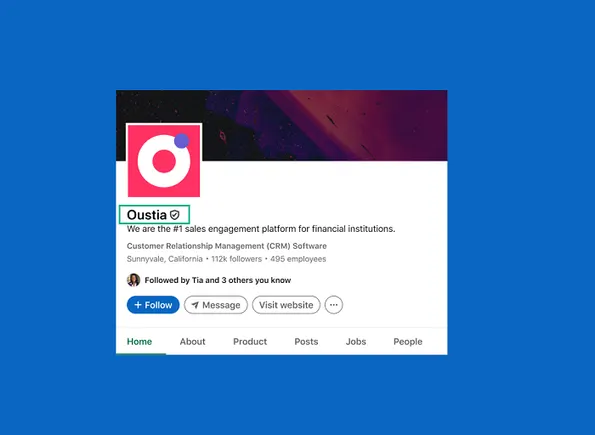This trio founded Melvados to manufacture gourmet food, will soon open its 9th outlet
Melvados has been helping Singaporeans address their food needs since 2014 with their host of ready-to-eat meals and desserts.

Stepping into the kitchen to cook a family meal or prepping for following day’s lunch seems almost impossible after a long day. Bulk grocery buys might also be unnecessary with restrictions lifting and most of us being back in the office; most days it’s quicker for us to grab and go.
Melvados has been helping Singaporeans address their food needs since 2014 with their host of ready-to-eat meals and desserts. Its name is a play on the Spanish or Portuguese word for ‘bad’, implying sinful and delicious; something the co-founders like to recognise their food for.
These meals are suitable for most occasions — dinner parties, potlucks, barbecues — and its products simply need to be popped into the microwave for instant gratification. The best part? No more dirty dishes.
It also acts as a one-stop gourmet supermarket. Aside from the meal and dessert options, Melvados also offers unique localised snacks such as Pisang Goreng Brittle and Ondeh Ondeh Brittle, as well as a selection of round cakes.
A collective passion for food
 Melvados founders Karl, Raymond and Manmeet outside Foodedge Pte Ltd / Image Credit: Melvados
Melvados founders Karl, Raymond and Manmeet outside Foodedge Pte Ltd / Image Credit: MelvadosThe business is helmed by two 59-year-old friends, Manmeet Pal Singh and Raymond Foo, who have been friends for over 40 years; alongside third-generation pastry chef and Master Confectioner, Karl Gunter Ableitner, who is 65.
Raymond always had an interest in entrepreneurship and learnt many business and life lessons from his father. He also had the opportunity to head overseas to run a joint venture where he learnt to navigate different business dynamics.
Meanwhile, Manmeet began his stint in entrepreneurship over 25 years ago with his first company, TransFlorand Pte Ltd, which he runs alongside Raymond and another friend. It does dropshipping for on-demand products, which soon grew into a fleet of freezer trucks and drivers and today, it still handles large-scale B2B cold chain logistics.
Throughout his work with TransFlorand, Manmeet noticed a number of foreign-made frozen products such as ice creams being flown into Singapore. He found little competition in the local market, and saw an opportunity within the food manufacturing space to make gourmet food locally with the same European quality at half the cost.
Simultaneously, Manmeet was introduced to Karl, who was the head of production at Dome Food Industries. Karl started his career as a technical product advisor for overseas food ingredients as part of a trading company, before transitioning to become a pastry chef and factory manager at several local companies. Through this experience, Karl learnt what it meant to start and grow a local food factory.
Early trailblazers in the food scene
At the time of initiation, the food scene was scant compared to today’s.
There were few independent coffeehouses and not a big emphasis on Made in Singapore food products. We definitely had a more difficult time convincing our customers that our ‘Western-inspired’ products were just as good as those imported from Europe. There was also a lot more resistance to trying more unique flavours and ingredients, definitely not as much fusion as there is today.
– Manmeet Pal Singh, co-founder Foodegde Pte Ltd, MelvadosThe three found difficulty marketing Melvados at a time with no social media presence. Traditional advertising such as radio and television were not cost-effective for a startup as well.
Relying solely on word-of-mouth and sampling events, they would invite people to come and try out the food at their factory open house once a month. Before long, the sampling days became a highlight for many, leading to the brand’s takeoff.
 Samples of Melvados ready-to-eat meals /Image Credit: Melvados
Samples of Melvados ready-to-eat meals /Image Credit: MelvadosFor the team, the sampling sessions were also a way of collecting feedback. They would observe their customers, speak to them, ask them about the flavours, any ideas they might have, and what they wanted to see more of.
“It was such an effective and quick way to learn. Over time, we’d notice people coming specially to these sessions to stock up for their freezers, and that’s when we knew there was indeed a demand for such products to be for everyday consumption. It gave us confidence, and we decided to open our first store in Joo Chiat in 2013. That was our biggest turning point and we never looked back,” Manmeet said.
Being a small team, they were also always finding ways to pivot to keep up. They would focus their time and resources on research and development (R&D), which is a big part of understanding the brand’s customer sentiments.
Aside from R&D, the team is also constantly managing costs — costs of ingredients, manpower, logistics, among other things. Striking a good balance helps ensure the brand’s profitability, which aligns with Melvados’ goal to provide gourmet food at affordable prices.
Pivoting during the pandemic
 Manmeet and Raymond with host of Melvados products / Image Credit: Melvados
Manmeet and Raymond with host of Melvados products / Image Credit: MelvadosManmeet explained how the pandemic both hurt and helped the business. Its parent company, Foodedge, lost a lot of customers overnight; some of which had large standing orders with them or had been their customers for over 15 years.
Despite Foodedge’s heavy loss, the pandemic and circuit breakers were pivotal for Melvados because they sold food products one would need to survive whilst at home. They saw a tremendous increase from meals, to sauces, to soups; especially in their online orders. Customers were also using their platform to send each other gifts like ice cream bundles, cake platters, and snack packs.
Manmeet explained how they took the demand for Melvados’ food delivery and ran with it.
We suddenly became a hamper company too, so we had to very quickly adjust our team to focus on the Melvados brand. Those with cars doubled down as delivery drivers, our admin staff were all packing furiously in the morning to get orders out, [and] we all had to train ourselves in doing customer service [while] still keep up with all the changing restrictions.
– Manmeet Pal Singh, co-founder Foodegde Pte Ltd, MelvadosMelvados grew as a brand during the pandemic and ended up being the overall saving grace.
To remain competitive within the growing food industry, Melvados continued its efforts in R&D; always having eyes and ears on the ground and looking to overseas markets to monitor its trends.
Its ideation, experimentation and scaling process has a quick turnaround. Within a month, the newly developed product can be on the shelf, allowing the team to conduct quick testing to see what works and what doesn’t without investing too much time and money.
How do they decide the final product selection? Two criteria: the meal has to be just as delicious after defrosting and heating as it was fresh out of the oven, and it also has to be competitively priced without compromising on the quality of the ingredients.
“Even if it’s super tasty, if it’s just too expensive compared to the current range, we would rather not launch it than to switch the ingredients to lower quality options or poorer substitutes,” he says.
Unpredictability needed for growth
 Karl, co-founder of Melvados / Image Credit: Melvados
Karl, co-founder of Melvados / Image Credit: MelvadosRunning a business comes with a rollercoaster of ups and downs. Aside from the pandemic, the team had to factor in the constant fluctuation of commodity prices and disrupted supply chains. To date, it still remains their biggest concern.
The various lockdowns globally caused a huge supply chain delay, in turn increasing the price of logistics by three to four times. As that eased, the Russia-Ukraine war began and tripled the price of ingredients and raw materials.
From flour to sugar to chicken, every day was a repeat reminder of the rising costs.
On our end, we had to put in a lot of resources to manage the costs in detail and find alternative suppliers. We’re also closely looking internally at our product offerings to see what makes sense to continue producing, and what simply cannot be done anymore. The overall increase in prices is hurting our customers too.
– Manmeet Pal Singh, co-founder Foodegde Pte Ltd, MelvadosBeing a completely self-funded business, the founders have never raised money or taken any external funds. And in spite of the constant unpredictability, Melvados’ growth has been steady, with every single profit earned reinvested into the business.
Since its inception in 2004, Melvados has grown it footprint to eight outlets in Singapore, with a ninth one opening in Singapore. It also has a thriving online platform, and selected items off their menu are also available on other online platforms like Grab, foodpanda, Deliveroo, Amazon, and Fairprice Marketplace.
“In terms of growth, it’s not like what you see today, where companies are growing a few hundred per cent year-on-year, but it is us being comfortable and profitable; a criteria for doing good business, and that remains our mindset.”
Featured Image Credit: Melvados

 KickT
KickT 
































